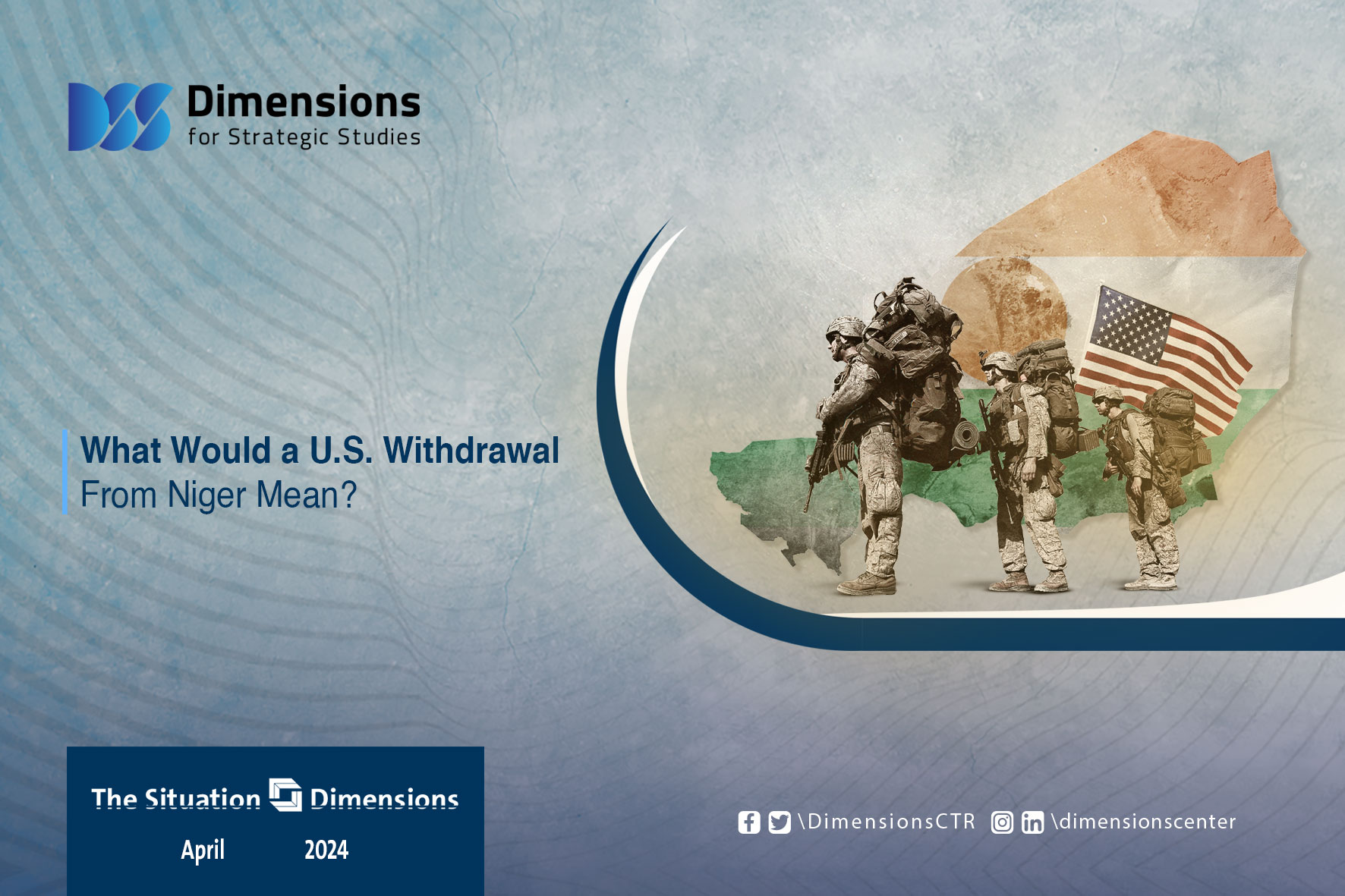
What Would a U.S. Withdrawal From Niger Mean?
2024-04-162015 view
On March 16, Niger’s ruling Military Council announced it was ending military cooperation with the United States. This followed several meetings with a U.S. delegation led by Assistant Secretary of State Molly Phee and the Head of the U.S. Africa Command, General Michael Langley.
The head of Niger’s ruling junta, General Abdourahamane Tchiani, refused to meet the American delegation, which nevertheless extended its stay in a bid to re-negotiate the military cooperation deals between the two countries. All this was to no avail: Niger announced it was terminating the agreement and that U.S. forces should leave the country, blaming Washington for “violating Niger's constitutional and democratic norms.”
Prior to the coup against President Mohamed Bazoum in July 2023, Niger had been a major U.S. security partner and hosted two military bases, one of which—Base 201—was the most important U.S. air base in West Africa. American forces used the site as a launchpad for regular drone sorties to gather intelligence on jihadist organizations, smuggling gangs and organized crime south of the Sahara. It also housed about 1,100 American special forces personnel, tasked with training the Nigerien army.
The U.S. had dealt with the toppling of Bazoum calmly, at first refraining from describing it as a coup at all. When the Nigerien military junta insisted that it would not restore democracy, the U.S. Congress suspended humanitarian aid, but it maintained its military aid and agreements with Niamey. Washington also rejected a decision by the West African cooperation bloc ECOWAS to sever relations with Niger, place it under blockade and prepare a military intervention in the country to restore order. The U.S. also sent an ambassador to Niger—albeit without presenting his credentials to the military junta—in an attempt to balance between not recognizing the legitimacy of the military junta on the one hand, yet not completely severing relations on the other.
In the meantime, Niger has strengthened its military and political relations with neighboring Burkina Faso and Mali, whose rulers also came to power in recent coups. It has also reached out to Russia and Iran, placing these major U.S. rivals in direct competition with Washington and European countries on the African continent.
The expected American withdrawal from Niger is likely to weaken U.S. and European states’ capacity to collect information about jihadist organizations, which will in turn erode their ability to combat these groups, which are therefore likely to grow in influence and pose a growing threat to European interests in North and West Africa.
The U.S., aware of the risks posed by the relationship between Russia and Niger, may seek further negotiations with Niamey to find diplomatic solutions aimed at cutting off Russia’s attempts to increase its own influence in the region. Washington may send another delegation to Niamey to seek compromise solutions that satisfy both parties, with a focus on keeping relations alive, as well as allowing for the security situation in Niger to stabilize in Washington’s favor.
The U.S. is seeking out alternative security allies in West Africa, including Benin, Togo, Ghana, Guinea, and the Ivory Coast. But these states lack the military infrastructure the U.S. had established in Niger, as well as suffering from poor border controls and the constant threat of jihadist organizations along the coast. The repressive political regimes in most of these countries also means that the presence of American soldiers on their soil would be a potential source of popular unrest in the future.
In the event of a U.S. withdrawal, Russia would also benefit from the presence of the Wagner group in Niger. This would enable it to weaponize flows of irregular migrants towards the Mediterranean, by facilitating transit routes for migrant-smuggling gangs across the Sahara Desert. This would pose particular challenges for countries in southern Europe. Russia is also likely to strengthen its logistical networks and even play a direct role in local people-smuggling networks, which would boost the resources of its militias in the region.
Russia could also establish its own military base and station its forces in Niger, agreeing a legal basis for their presence through an official agreement with the military junta. This will enable it to monitor and collect intelligence about potential jihadist and other threats. Therefore, soon after American drones depart, Russia may be flying its drones over the skies of Niger.
The Kremlin would not be the only beneficiary of a U.S. withdrawal. The move will likely to weaken Washington’s efforts to prevent Niger from cooperating with Iran, including by providing it with uranium. Bazoum had gone along with Washington’s policy of refraining from selling nuclear materials to Tehran or its intermediaries. By contrast, the current ruling junta has not hidden its willingness to cooperate with Iran in various fields, and uranium—one of Niger’s main natural resources—is unlikely to be an exception.
Türkiye, whose influence is growing across the Sahel region, has also maintained balanced relations with Niger since the military coup in July 2023, rejecting the military intervention being prepared by ECOWAS and strengthening its own military relations with the governments in the region by offering discounts on sales and operation of Turkish drones. Indeed, Türkiye appears close to reaching such a deal with Niger, following similar agreements with Mali and Burkina Faso.
Ankara is therefore likely to seek to boost its influence in Niger and build on the security and military agreement it already signed with Niamey in 2021, strengthening its presence in the region more generally. Türkiye is also likely to seek to establish a military base in the Agadez region of northern Niger, bordering Chad, Libya and Algeria, which is rich in uranium and gold. This could then allow Turkish mining companies to access new resources.
In conclusion, the withdrawal of U.S. troops from Niger after the latter’s military rulers cancelled their defense agreement is likely to provide an opening for new international actors on the security and military scene in Niger, especially Russia, Iran, and Türkiye. These countries will seek to tap into local resources, which would increase their influence in several areas.
Iran is keen to access Nigerian uranium, either through simply buying it as at present, or through investment in mining it inside Niger in the future. Both Russia and Türkiye are seeking to fill the gap left by the U.S., to become security and military partners with Niger and reducing the American intelligence footprint in the region. They will also seek to boost their own resources by investing in gold and uranium mines, and in Russia’s case, controlling smuggling routes and putting pressure on Europe by facilitating ongoing inflows of refugees.





